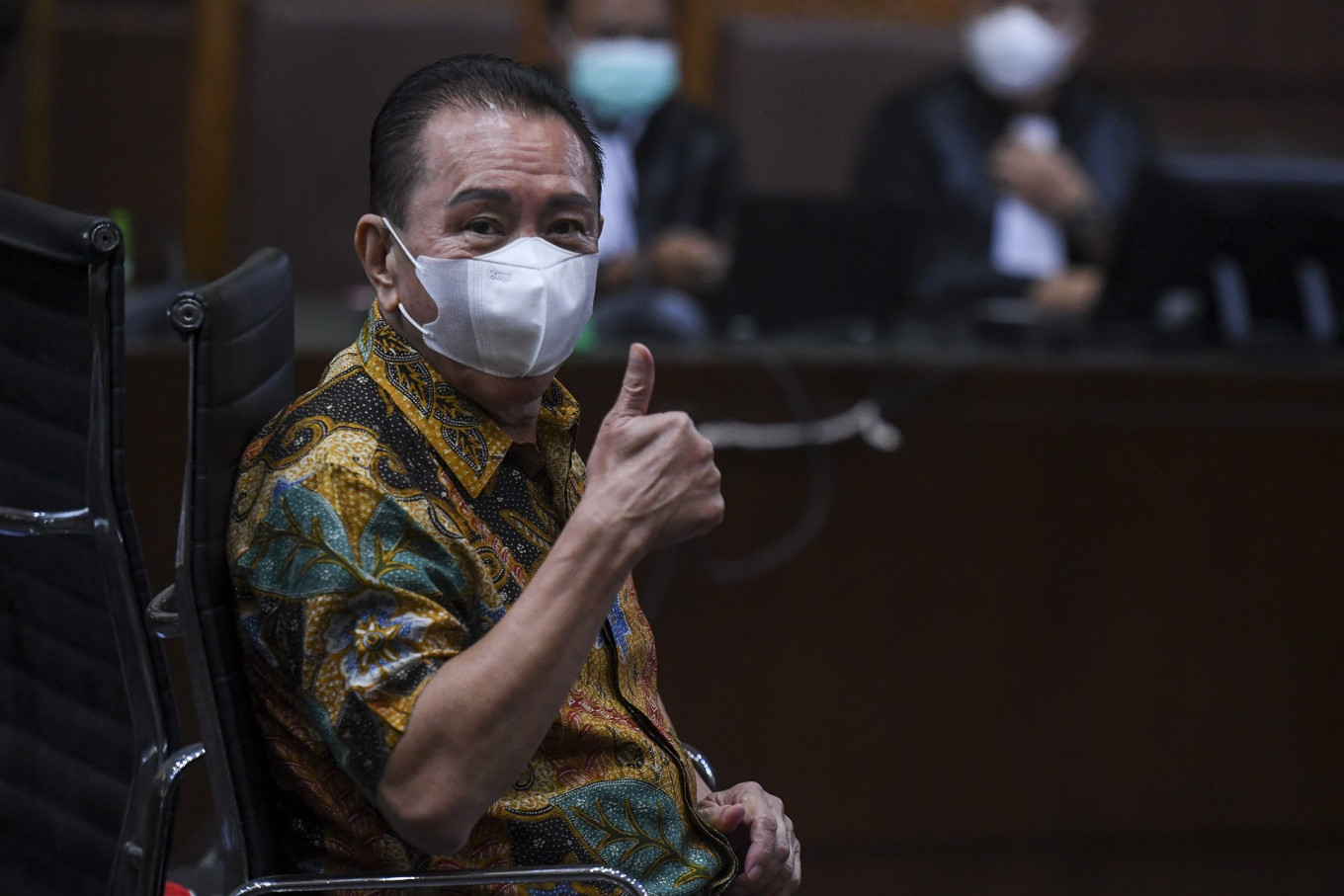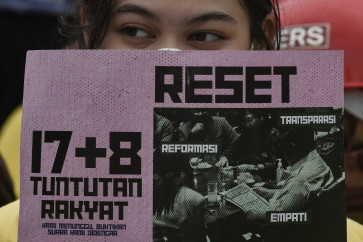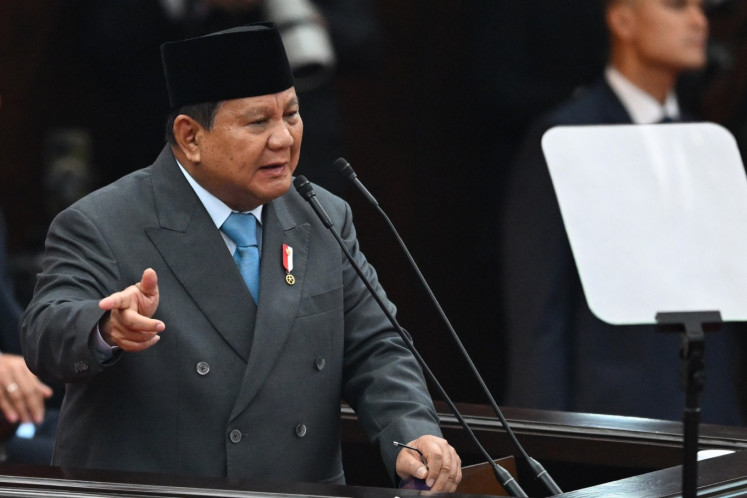Popular Reads
Top Results
Can't find what you're looking for?
View all search resultsPopular Reads
Top Results
Can't find what you're looking for?
View all search resultsSlashed sentences for graft convicts ‘alarming trend’, warn activists
Sentence cuts seen as undermining graft fight
Change text size
Gift Premium Articles
to Anyone
I
ndonesia’s flagging anticorruption fight faces even more hurdles, with the reduction of sentences for graft convicts becoming common practice in the nation’s higher courts.
Recent court rulings overturning or reducing otherwise hefty penalties for corruption have weakened the already beleaguered antigraft movement, which also suffers from opaque state and business conduct under the veil of COVID-19 restrictions.
In late July, a panel of judges at the Jakarta High Court ruled to cut runaway graft convict Djoko Tjandra’s prison sentence from four and a half to three and a half years.
The Supreme Court sentenced Djoko to two years in prison and ordered him to pay Rp 546 billion (US$37.86 million) in restitution in 2009 for his involvement in the high-profile Bank Bali corruption case, but he fled to Papua New Guinea a day before the court issued its ruling. The police caught him in Malaysia and brought him back to the country last year.
Djoko’s court ruling was decided after a Jakarta High Court panel of judges granted an appeal by disgraced Attorney General’s Office (AGO) prosecutor Pinangki Sirna Malasari on the basis of gender, setting a new precedent for the country’s judicial bodies and shaving six years off her initial prison sentence.
The Jakarta Corruption Court sentenced her to 10 years in prison in February, heftier than the four-year prison term demanded by prosecutors. She was found guilty of accepting $500,000 in bribes from Djoko in exchange for her help in securing an acquittal from the Supreme Court.
Both rulings add to a growing list of cases in which graft defendants received significant sentence cuts in the appeals court, tarnishing the already weakened antigraft movement of a nation known for rife corruption practices.
Another recent example is an attorney named Lucas. The Jakarta Corruption Court initially sentenced him to seven years in prison for his role in obstructing the investigation of Eddy Sindoro, a former Lippo Group official who became a suspect for bribing a clerk from the Central Jakarta District Court. The Jakarta High Court shortened his prison term to five years, before the Supreme Court further cut it down to three years.
Former Democratic Party chairman Anas Urbaningrum also had his prison sentence reduced from 14 years to eight years by the Supreme Court. He was found guilty in a corruption case pertaining to the Hambalang sports complex in Bogor, West Java. The case also involved Angelina Sondakh and other politicians from the party.
Antigraft advocates noted that the growing number of sentence reductions and acquittals had begun to form “an alarming trend” in the last two years.
According to an Indonesia Corruption Watch (ICW) report, the number of acquittals in 2020 was at its highest in the last four years, with 66 defendants acquitted. In the previous year, 54 were acquitted, 26 in 2018 and 35 in 2017.
Wawan Suyatmiko of Transparency International Indonesia (TII) said the trend indicated a lack of monitoring of court justices in the higher courts.
“The courts need stronger supervision so that the resulting decision is free from various kinds of interference and influences outside the law,” Wawan said in a statement.
Zaenur Rohman, a researcher at Gadjah Mada University’s Center for Anticorruption Studies (Pukat UGM), also pointed out that this trend started occurring after the departure of court justices like Artidjo Alkostar.
Artidjo was a former Supreme Court justice known for his no-nonsense demeanor and clean track record.
He made graft convicts think twice before lodging an appeal as he would often give them harsher sentences than their initial verdicts.
Without such a figure, Zaenur said, the opposite occurred.
“More corruption convicts submitted appeals to the Supreme Court, which resulted in the reduction of many of their sentences,” he told The Jakarta Post on Tuesday.
The growing number of corruption cases getting reduced sentences in recent years has resulted in a diminishing “deterrent effect” on convicts, Zaenur added.
According to the 2020 Corruption Perception Index published by Transparency International, Indonesia, as one of several key economies in Asia, still ranks mid-table at 37th place, which the NGO says demonstrates “slow progress in anticorruption efforts [and] commitments to reforming not yet materializing effectively”.
The index attempts to paint a clear picture of a country’s willingness and capability to combat corruption, including its institutional capacity and legal framework.
Indonesia, while having a robust system in place for mitigating corrupt practices, has seen in recent years efforts to chip away at the Corruption Eradication Commission’s (KPK) independence, starting from attempts to revise the KPK Law two years ago.
Activists noted that the trend had also been impacted by the KPK’s underwhelming work under the leadership of Firli Bahuri, which stems from a perceived lack of commitment to curbing corruption.
“With KPK’s poor performance under the current leadership, there is no institution that encourages the judiciary to become reliable institutions for eradicating corruption at the first instance, such as cleansing its ranks of corrupt practices,” Zaenur said.










